Were drivers told the Turnpike approved 3% annual toll hikes? New 'index' scrutinized
- Oops!Something went wrong.Please try again later.
- Oops!Something went wrong.Please try again later.
A new tolling “index” quietly approved by the New Jersey Turnpike Authority in 2020 was proposed, in part, to take the politics out of toll increases.
But it doesn’t appear to have worked.
Last week, Gov. Phil Murphy — after facing public pressure from both sides of the aisle just before the election to stop a toll hike for 2024 — vetoed the Turnpike Authority’s board minutes.
He tweeted that he needed “more information” and “justification” from the board about why the toll hike was necessary — an explanation some found unconvincing given that Murphy’s new chief of staff, Diane Gutierrez-Scaccetti, also chairs the board of the Turnpike Authority.
State Sen. Anthony Bucco, a Republican from Morris County, called it a last-minute decision to curry favor with voters ahead of Tuesday’s election — when all 120 state legislators are on the ballot and several competitive districts could flip one of the houses.
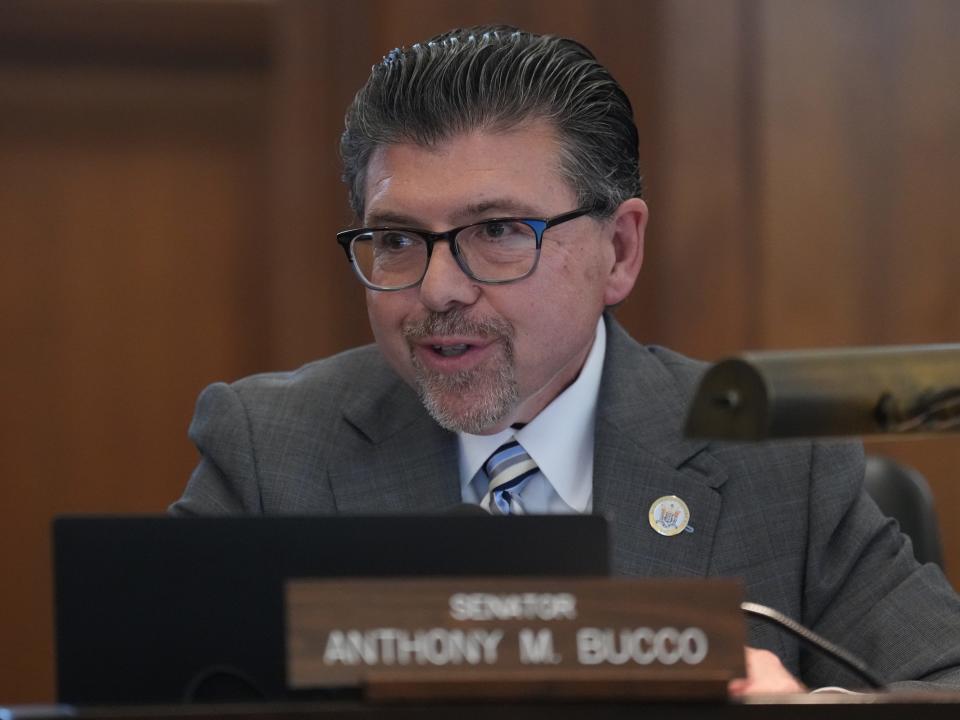
“Absent the entire Legislature up for reelection ... this toll increase would have gone through. Just like the prior three increases,” said Bucco, the Senate minority leader. Like the Democratic leaders — Senate President Nicholas Scutari and Assembly Speaker Craig Coughlin — Bucco had called on Murphy to veto the minutes.
By vetoing the minutes, Murphy effectively negated the board's approval of the budget at that meeting, which included the 2024 toll increase.
Coughlin and Scutari declined to comment for this story.
In May 2020, the Turnpike Authority board passed a resolution that increased tolls 36% and 21% on the turnpike and the Garden State Parkway, respectively. Those took effect in September 2020. The Turnpike Authority board that year also approved a new toll index system, which led to 3% increases in 2022 and 2023. Another 3% hike was planned for 2024 before Murphy’s veto.
More: Tap the brakes: Murphy says he'll veto NJ Turnpike budget that includes another toll hike
More: New Jersey Turnpike tolls, Garden State Parkway rates increasing in 2024
“If you look at the governor’s words where he says he needed more information, that leaves him an out to later on come back and say, ‘I got more information and this increase is going to be approved after the election,’” Bucco said.
Murphy spokesmen Bailey Lawrence and Mahen Gunaratna did not respond to multiple requests for comment.
Tom Feeney, a spokesman for the turnpike, said Murphy called the veto a “timeout and said he would analyze the data before making a final decision on how to proceed,” adding that the board has until the end of December to approve a budget. The next turnpike meeting is scheduled for Nov. 21.
The toll index decision was overshadowed in 2020
Suspicion of political maneuvering aside, the veto decision drew new attention to the toll increases and how the index works.
In May 2020, when the turnpike board approved the index, much of the attention was on the steep toll increases the authority proposed for later that year, as well as the fact that the authority conducted only in-person public hearings just as residents were advised to stay home because of the onset of the COVID-19 pandemic. Residents could watch the hearings online but could not participate virtually.
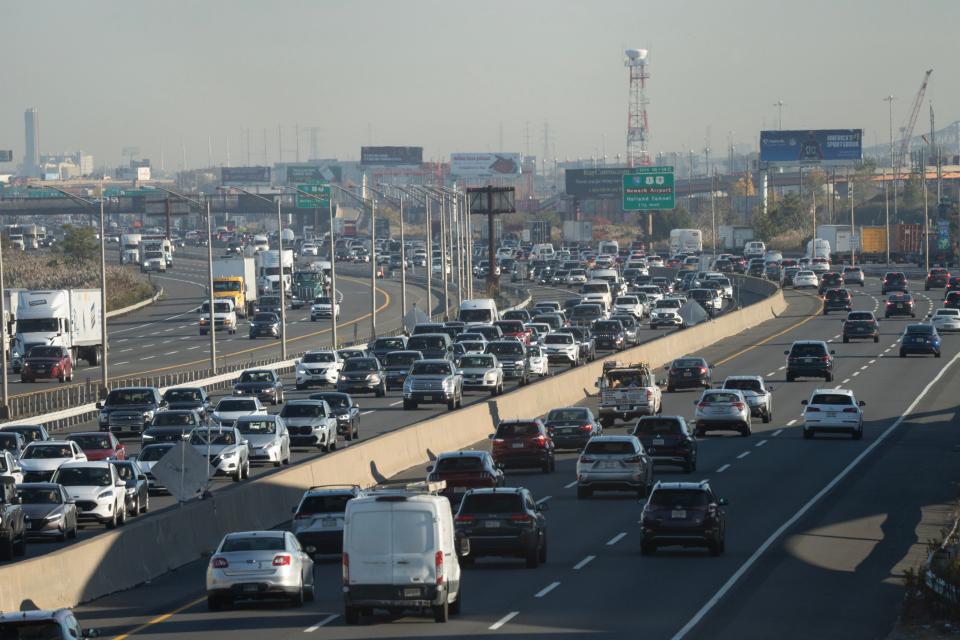
Scores of New Jersey residents were still engaged in the public hearing process, Gutierrez-Scaccetti said at the time, even as lawmakers and others called on the authority to pause the program because of COVID.
A few dozen attended the hearings in person, thousands sent emails to the Turnpike Authority with comments, and hundreds watched the meetings from home. The focus was on the 2020 toll increases; there was little talk about the index.
Changing language about the toll index
During her presentation at two public hearings held in March 2020, Gutierrez-Scaccetti’s prepared remarks on the new index was limited to three sentences.
“Tolls are proposed to be indexed at an amount to be determined, but in no case more than 3% annually,” she said.
The board resolution that passed in May 2020 used the same language.

But in documents not presented directly to the public — those filed with bondholders and credit rating agencies or posted in the lengthy pages of appendices to various reports available on the turnpike's website — the language about the index is different. Those documents said that starting in 2022, tolls would increase 3% annually.
Feeney, the turnpike spokesman, said, “There were several documents introduced in connection with the 2020 toll hearing describing the annual increase as 3%,” and linked to two documents from different consultants.
One is an undated financial assessment conducted by NW Financial and the other is a traffic and revenue forecast completed by CDM Smith, dated May 20, 2020, seven days before the board voted on the index, two months after the public hearings took place and more than six weeks after public comments were due for consideration.
In the latter document — which is Appendix G on the turnpike’s website, and one of the thousands of pages of documents available on that landing page — the authors wrote: “Instead of implementing larger (30% to 50%) toll increases every 10 years or so, the NJTA proposes implementing smaller annual 3% toll adjustments beginning in January 2022.”
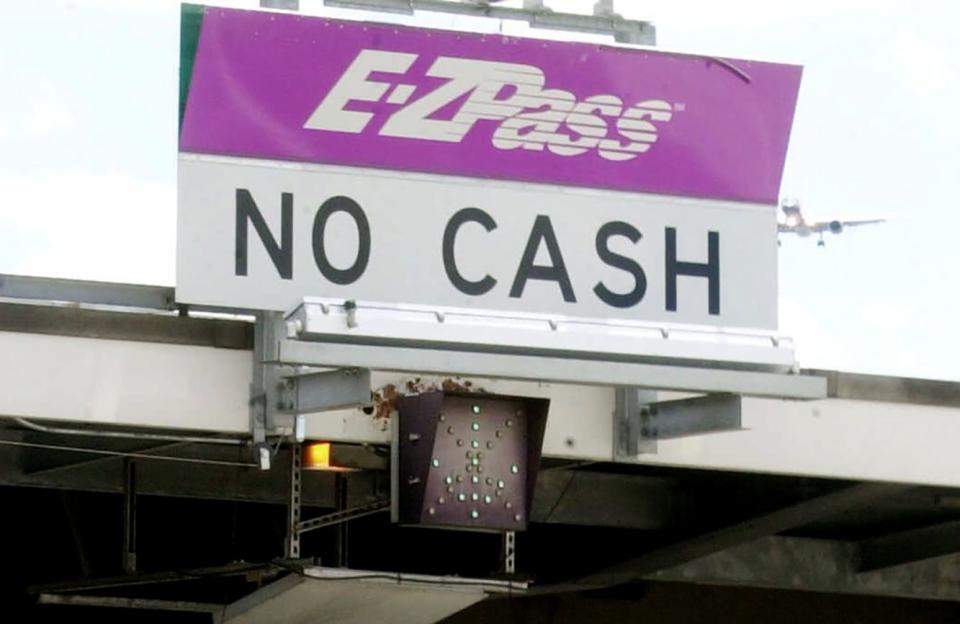
Asked why the public wasn’t told that the plan all along was to increase tolls annually 3%, Feeney said, “There was never any effort to conceal the likelihood that the annual adjustment would be 3 percent.”
None of the news articles written in 2020 about the new toll index called it a 3% annual increase; a few articles said authority officials did not elaborate on what indicator the index would be tied to.
Toll indexes are used elsewhere
Using an “index” to determine toll increases is not a new concept.
The board of the Port Authority of New York and New Jersey approved using a toll index in 2008, so that when the cumulative Consumer Price Index (CPI) reaches $1 a toll increase is triggered. In Chicago, a private operator of the Chicago Skyway toll bridge can choose among three factors to raise tolls on an annual basis: the CPI, the GDP or a flat 2%.
More: NJ Turnpike Authority pushes for massive $11B widening between Newark and Jersey City
Unlike either of those authorities, the turnpike has never publicly explained its toll index and how it works, whether it’s tied to an economic indicator, or what triggers an increase. Questions from NorthJersey.com to Turnpike Authority officials about this were not answered in 2020, in 2022 or last month.
But according to highway funding and toll authority experts, an index is supposed to be tied to something.
“If they’re saying they’re using an index, as an economist, I would be expecting you to refer to some sort of official metric of inflation or costs,” said Jonathan Peters, a professor with the City University of New York who studies transportation finance and road pricing.
“The other question is, ‘Why are you raising the tolls?’ You’re jumping ahead in saying you need to raise 3% a year," Peters said. "The reason you raise the toll is an additional cost of operation.”
Gutierrez-Scaccetti told NorthJersey.com in 2020 that the reason for switching to an index system was to improve the authority’s standing with creditors, create more predictability and support its new capital plan.
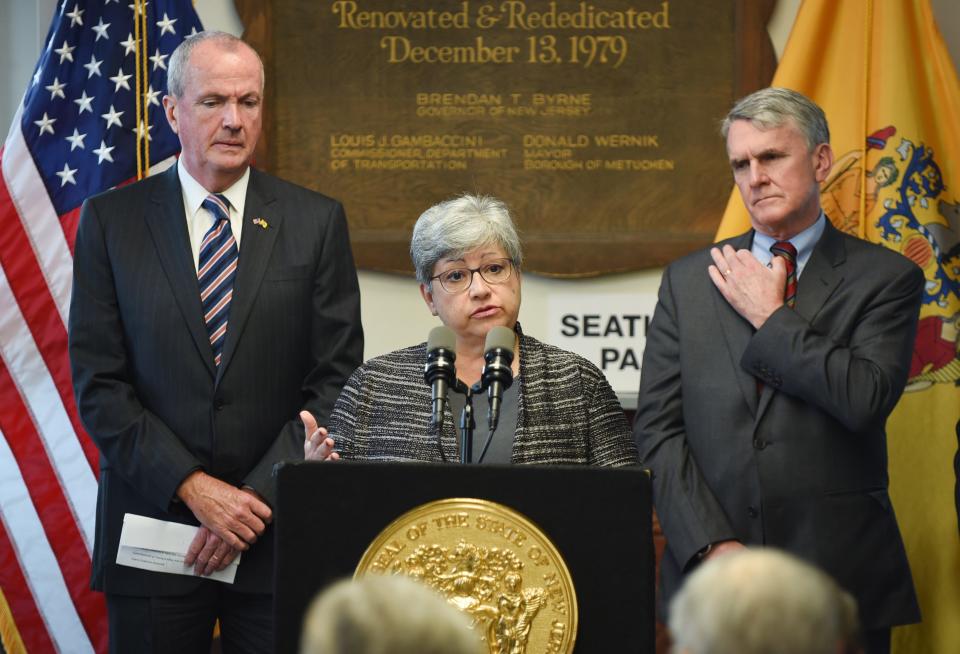
“Over the years, the way the Turnpike Authority has managed capital is to do a sizable (toll) increase. Get a lot of work done. Stop. Do a sizable increase. Get a bunch of work done. Stop," she said in 2020. "And one of the biggest criticisms we get, especially from the credit rating agencies, is the fact that our process for capital improvement is truly politically driven.”
“Indexing is a fairly popular way in the tolling industry of managing the increased costs that we face over time, and the ability to continue to maintain capital improvements seamlessly,” Gutierrez-Scaccetti said.
Credit rating agencies took notice
Credit agencies and bondholders certainly noticed.
In the early months of 2022, the Moody’s, Fitch and S&P credit rating agencies all upgraded the Turnpike Authority’s ratings to A1 stable from A2 stable, A+ from A and AA- stable from A+ stable, respectively — all citing the annual 3% toll increases as one of the driving reasons.
“NJTA benefits from unlimited legal authority to change toll rates as needed,” Fitch wrote in its March 2022 rating upgrade. “Annual toll increases of 3% began in 2022, which should remove the need for periodic large rate increases. Nevertheless, some uncertainty remains as to the level of political and user support for future rate increases above inflation.”
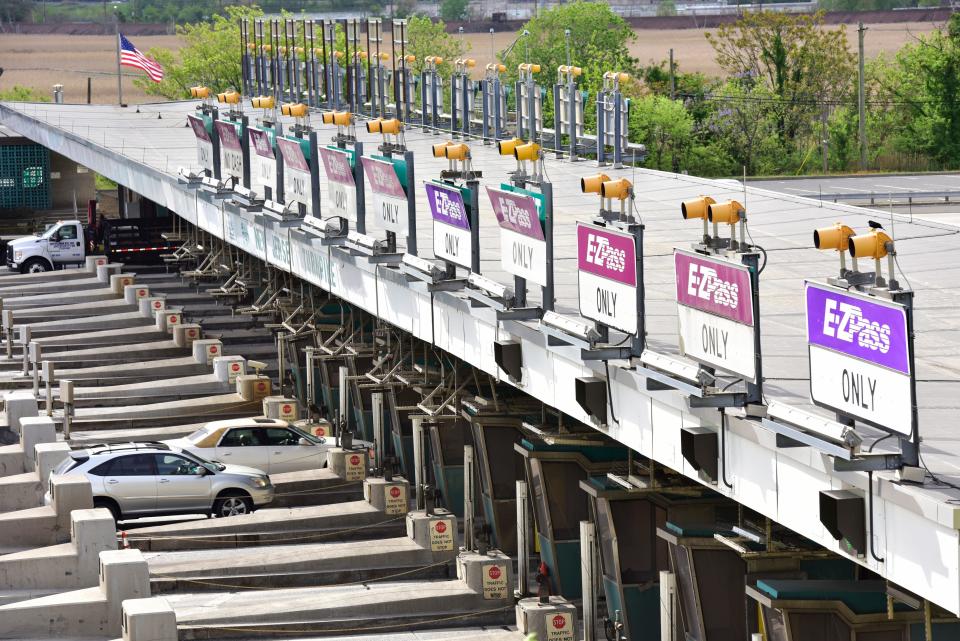
Similarly, a legal document about new bonds issued by the Turnpike Authority on Aug. 30, 2023, stated that “commencing on January 1, 2024, the tolls on the Turnpike and the Parkway will be increased annually by 3%.” The bonds were approved by the Turnpike Authority board in July — after written consent was given by Murphy and Elizabeth Maher Muoio, the state treasurer, days before the meeting, according to board documents.
Fitch also noted that the Turnpike Authority is borrowing more than it needs to cover debt service.
“Toll revenues need to grow by 1% annually in order to cover debt service, which is reasonable especially considering 3% annual toll rate increases,” the rating company said.
Could veto affect bond and credit rating?
The Turnpike Authority has other state agreements that its toll revenue supports, such as sending aid to NJ Transit for its annual operating budget, supporting the state Transportation Trust Fund, and funding large projects, including the Gateway rail tunnel project under the Hudson River.
Bucco, the Senate minority leader, said his concerns go beyond the politics that appear to be at play with Murphy’s decision to veto the minutes.
“Are they doing this on a yearly basis, are these increases necessary, and the fact that he vetoed these — is it going to have an impact on our bond ratings and our financial position with creditors?” Bucco said.
“If this was included in a statement that the bonds are going to be backed by future increases, then I’m sure that investors are not going to just ignore the fact that this last increase was vetoed,” he said.
As of Friday evening, the Turnpike Authority had not filed documents with the Electronic Municipal Market Access (EMMA) system about the veto and its potential effects on revenue. EMMA is where financial updates are posted for the public seeking information about the bond market.
Asked whether there is an end date to the 3% annual toll increases, Feeney did not respond.
This article originally appeared on NorthJersey.com: Murphy blocked 2024 NJ Turnpike toll hike. Will it stick?

